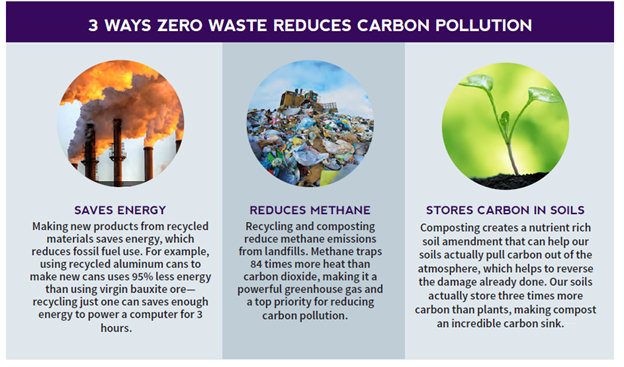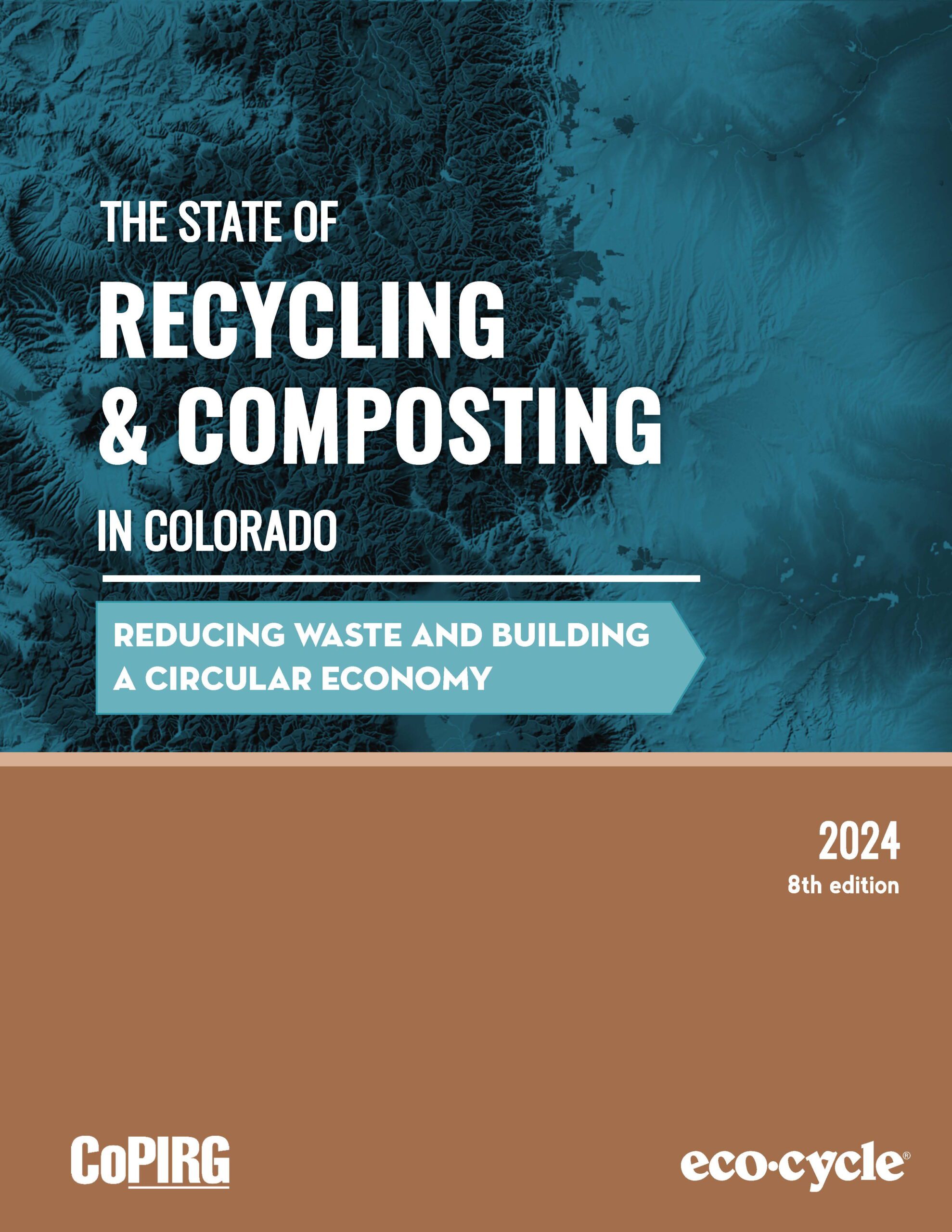Zero Waste Reduces “Consumption Emissions”
Nearly half of our global greenhouse gas emissions come from the extraction and processing of materials, fuels, and food (not including climate impacts related to land use). This means adopting a Zero Waste system and changing the way we produce, consume, and dispose of our stuff is critical to reducing global carbon pollution. Yet too often, Zero Waste is not even a part of the climate discussion.
A Zero Waste system can reduce carbon pollution in three ways:
- saving energy (and thus emissions) by using recycled materials to make new products;
- reducing methane emissions from landfills, which results when organic matter is landfilled; and
- pulling carbon out of the atmosphere by applying finished compost to our soils to increase their ability to sequester carbon.
Together, these solutions offer a tremendous opportunity to reduce greenhouse gas (GHG) emissions. By 2030, Zero Waste strategies could reduce GHG emissions by more than 400 million metric tons of CO2 per year, the equivalent of taking over 80 US coal-fired power plants off the grid! To put this in context, Zero Waste offers greater annual GHG savings than many other prominent climate strategies such as expanding nuclear power or significantly improving vehicle efficiency.
This video highlights the importance of Zero Waste as a local and global climate solution, and offers four critical steps to moving forward. (PS—Share it with your community leaders to help introduce Zero Waste into the climate discussion.)
Zero Waste Is One of the Fastest, Easiest, Most Cost-Effective Short-Term Climate Solutions
Solving our climate crisis means completely transforming our energy sources and transportation systems. These are both big and complex problems, and time is needed to develop comprehensive solutions. Unfortunately, time is in short supply as the impacts of climate change accelerate. Fortunately, Zero Waste strategies can be implemented TODAY, using existing technologies and proven programs, to produce immediate results. Zero Waste can essentially help buy us some time as we work to implement other systemic changes around energy use and transportation.
Zero Waste strategies are also cost-effective climate solutions. ICLEI, one of the leading networks of local governments for sustainability, recognizes recycling and composting as some of the most cost-effective actions local governments can take to reduce community GHG emissions.
Communities around the world are actively investing in Zero Waste as a priority climate action. One of California’s first actions in its landmark statewide climate change policy was to require businesses and apartment complexes to recycle, a move that will reduce GHG emissions by five million metric tons.






























